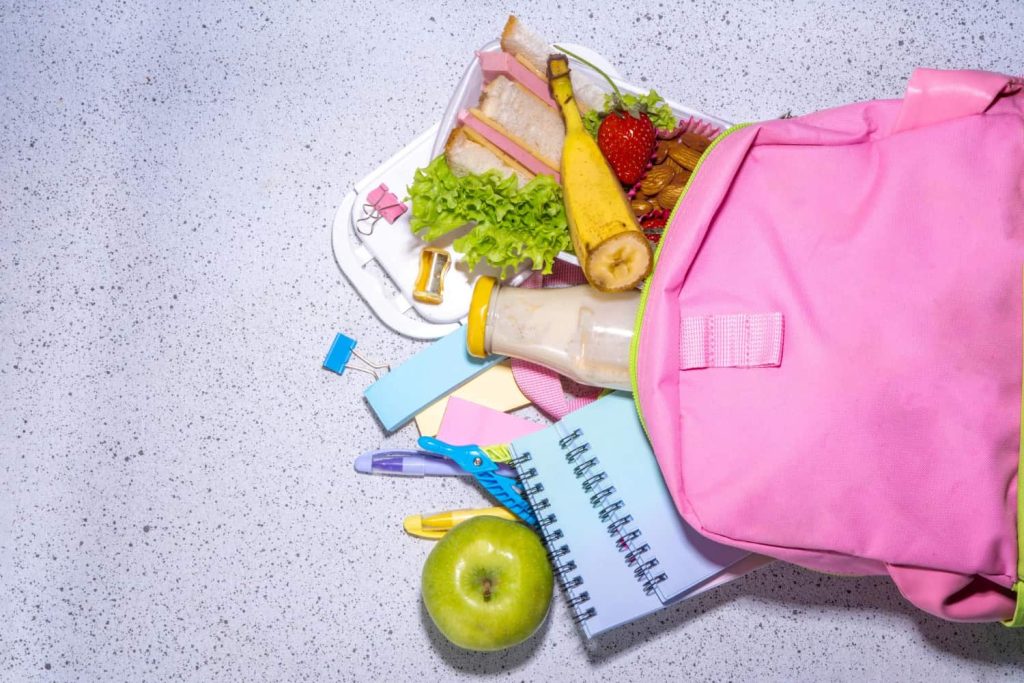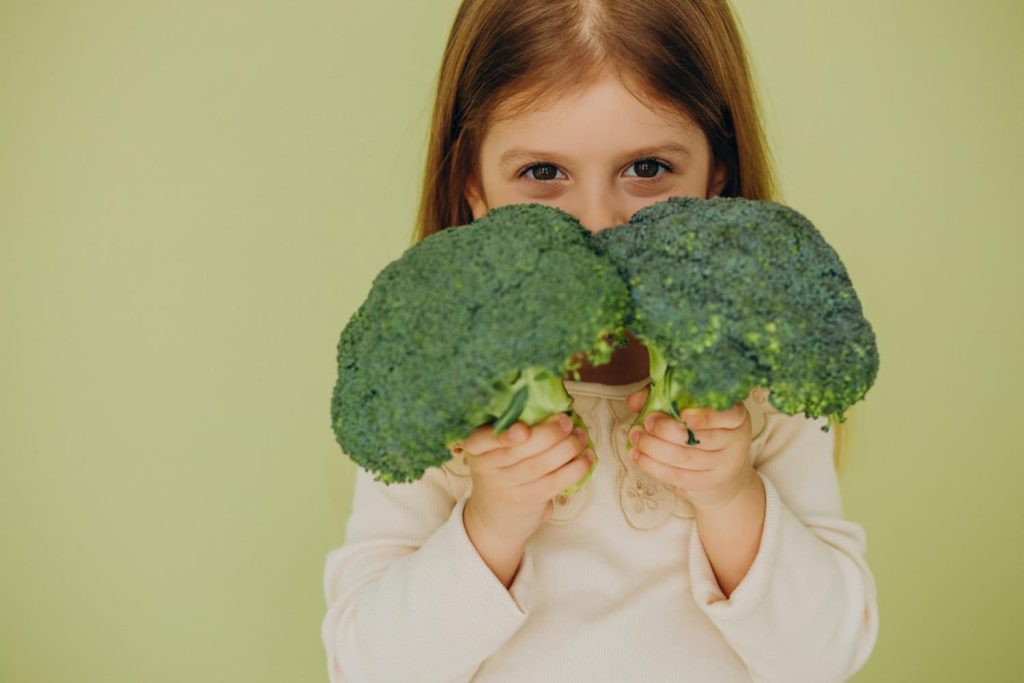
Useful foods to increase children’s concentration and learning
For many children, focus and attention in the classroom is an essential issue, and having proper nutrition can help with this issue. In the following, we intend to introduce useful foods and nutrients that can help children and teenagers focus and learn.
Vitamins and minerals
Omega 3 fatty acids
Omega-3 supplements are famous for supporting brain health, improving nerve function and cognitive development in children and are found in fish, fish oil, beef, eggs and chicken.
iron
Roy
Zinc helps strengthen brain cell communication, neurotransmitter function and mental development of the child and is found in white meats, mushrooms, spinach, yogurt and peas.
magnesium
Magnesium plays a role in nerve function and mood regulation in children and regulates neurotransmitters. If you want your children to have a more stable mood, include foods containing magnesium such as apples, bananas, avocados, dried figs, apricot leaves and raisins in their diet.
Vitamin D


Fruits and vegetables
Fruits and vegetables are the most important elements in the diet of intelligent children. In the following, we will introduce the most essential fruits and vegetables for the development of children’s intelligence and memory. You can do it on the side Effective ways to strengthen a child’s memory Use the following fruits and vegetables for this purpose.
black berry
Vitamin C present in black mulberry increases mental vitality, manages anxiety and stress in children and thus strengthens their intelligence. Other fruits in the berry family, such as blueberries, strawberries, and blackberries, are not only delicious, but they also support brain health. These fruits contain strong anthocyanins and antioxidants that help protect the brain by reducing inflammation and improving blood flow. Eating berries, especially blackberries, in children can lead to enhanced memory, faster thinking, and improved performance in intellectual subjects such as math and geometry.
Citrus fruits
Citrus fruits (such as oranges, grapefruits, tangerines, and lemons) are a source of flavonoids that are associated with improved brain function and memory. These fruits are rich in nutrients such as vitamin C, which plays an important role in protecting the brain against oxidative stress. A study showed that children who consume citrus juice have better brain function and memory and increased blood flow to their brain. Some parents include citrus juice in the food plan of their beloved children, but they need to know Principles of juice storage For a long time, it is different in different fruits, and some juices lose their beneficial properties very quickly.
Broccoli
Broccoli is a useful source of vitamin K, which is necessary for enhancing cognitive function and improving brain power. Since this cabbage contains compounds called glucosinolates, it helps to slow down the breakdown of acetylcholine in the brain (which is involved in memory function). Other members of the broccoli family such as cauliflower, kale and Brussels sprouts also have the same properties; However, some families The nature of broccoli and its benefits They are sensitive and it is necessary to get enough information about this before including it in the child’s diet.

Grains and carbohydrates
Whole grains are rich in carbohydrates, glucose and essential brain energy. They are also a useful source of B vitamins that help nourish the nervous system. Several studies have shown that a breakfast rich in whole grains has a greater effect on strengthening short-term memory and concentration compared to white bread and refined carbohydrates.
You can help improve your child’s learning and memory by adding oats, wholemeal or rye bread, quinoa and buckwheat to his breakfast; However, it is necessary if your child is allergic to gluten List of gluten-free foods Know to avoid possible harm to him. In addition, for Storage of breakfast cereals for a long time You should also have enough information to provide healthy food to your child.
Proteins
Proteins are one of the most important elements of the food pyramid. In the following, we introduce important proteins for the development of children’s intelligence.
egg
Children’s brains, especially in the first year of life, are growing at a significant rate. Choline in egg yolk plays an important role in improving memory power and almost meets the daily needs of children from 1 to 8 years old. Egg is a complete protein containing iron, folate and vitamins A and B12, which are important elements for the growth, repair and recovery of brain cells. However, before adding this nutrient to your child’s diet, it is necessary to know enough about it Allergy to eggs in children Have and prevent possible risks caused by this disease.
Fatty fish
Fatty fish are rich in omega-3 fatty acids, which have many benefits for brain development. Studies have shown that regular consumption of mercury-free fish in children, due to their role in the functioning of neurotransmitters, helps to reduce behavioral problems, improve learning and strengthen memory. Salmon, mackerel, tuna, calamari and sardines are very good sources of omega-3.
Nuts and snacks
Nuts and healthy snacks are known as brain health powerhouses. Almonds, walnuts, pistachios and cashews are rich in essential nutrients for the brain. Research has shown that a variety of nuts can significantly improve brain function. Also, in a study it was found that children who regularly consumed nuts had better verbal reasoning and cognitive performance.
Pumpkin seeds are also one of the excellent brains rich in zinc, magnesium and manganese, which play a role in strengthening memory and thinking skills. Also, you can add dark chocolate to your child’s diet plan as one of the excellent sources of flavonoids and help reduce mental fatigue and improve his concentration abilities.
The flavonoids in dark chocolate can cross the blood-brain barrier and directly affect areas of the brain that are responsible for memory and attention; However, if you want to include nuts or dark chocolate in your child’s snack list, you should consider the time and A suitable child’s snack program Know enough to prevent him from losing his appetite at other meals.
dairy products
Milk, yogurt, and cheese are excellent sources of nutrient-dense protein and fat-soluble vitamins A, D, and B, which help brain tissue grow and connect blood chemicals with brain enzymes. Studies show that people who consume dairy products 3 times a day have higher levels of a protective compound called glutathione in their blood, which protects brain function.
However, if your child is not interested in dairy, don’t worry, because there are other ways you can add these important elements to his diet; For example, instead of a glass of milk, you can cook porridge or special desserts for him Yogurt and pineapple dessert Put it on your child’s snack list.
Legumes
Peas, lentils and beans are rich in protein, fiber and various vitamins and minerals. Not only do they release your energy slowly, but they also keep you focused in class.

Harmful foods for a child’s memory and concentration
Some foods can damage children’s memory and concentration over time due to their high content of sugar, unhealthy fats and additives. Knowing these foods helps parents make better choices for feeding their children and provide a healthier environment for their mental development. In the meantime, parents of hyperactive children (who have more concentration deficits) should be more sensitive to this issue and with knowledge Harmful foods for hyperactive children remove them from their child’s diet.
Sugary drinks
Sugary drinks such as soft drinks, sports drinks, energy drinks and industrial juices not only cause obesity and increase the risk of type 2 diabetes, but also negatively affect brain function and reduce children’s concentration.
Refined carbohydrates
Refined carbohydrates include sugars and refined grains, such as white flour, cakes, cookies, and wholemeal breads, and have a high glycemic index (GI). This means that the body digests them quickly, causing blood sugar and insulin levels to rise. Research has shown that just one meal with a high glycemic load can impair memory in both children and adults and negatively affect children’s nonverbal intelligence (such as math skills).
Trans fats
Trans fats are a type of unsaturated fat found in margarine, ready-made cakes and cookies, and vegetable oils that can have harmful effects on brain health. Studies have shown that excessive consumption of these fats causes memory loss, reduced brain volume, and lack of concentration in children.
Processed foods
Processed foods such as chips, puffs, puff pastry and mayonnaise contain a lot of sugar, fat and salt. These foods are usually high in calories and not only cause weight gain, but also have a negative effect on brain health.
final word
Remember that a healthy diet provides only part of the factors necessary to strengthen your child’s memory and academic success, and ensuring adequate sleep, regular physical activity, mental rest, play and strengthening intelligence skills are also necessary for the overall health of the child’s brain. .
Source Link
